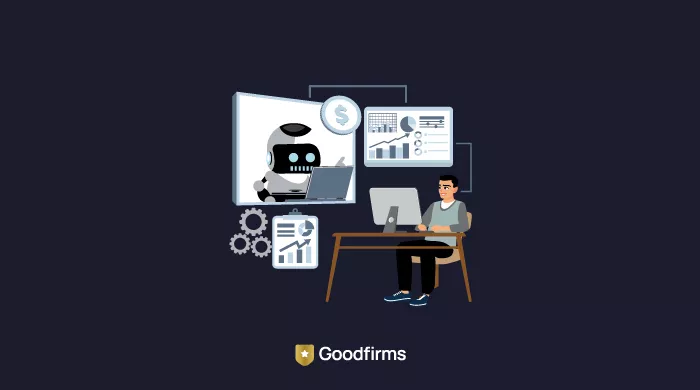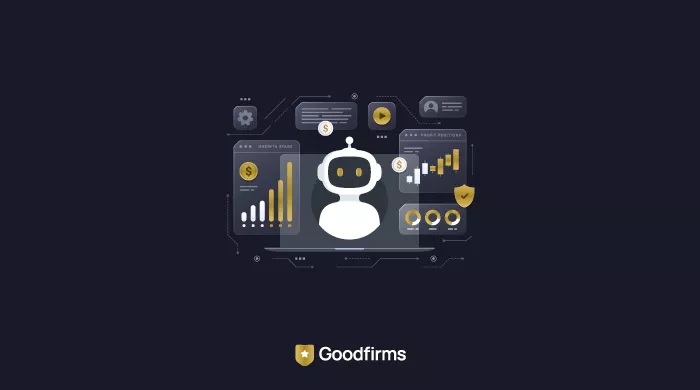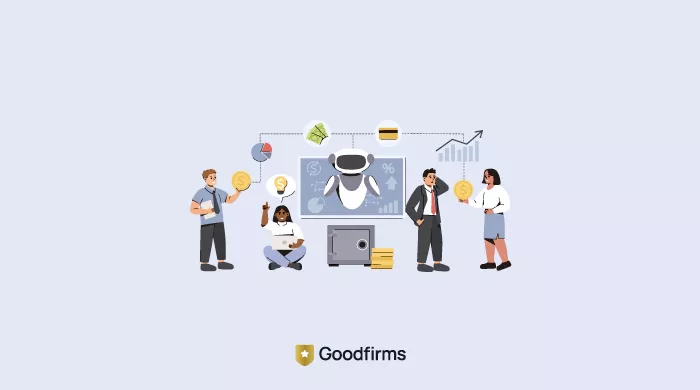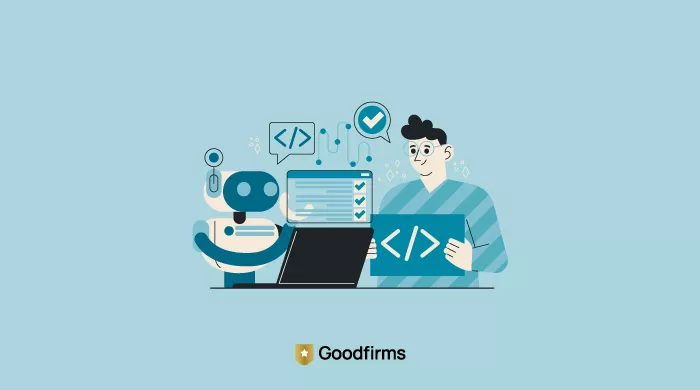Series of AI blogs | Ep 1 - Aviation Industry | Kicking the Tires and Lighting the Fires
“Machine intelligence is the last invention humanity will ever need to make." ~Nick Bostrom.
Drop in two words – “Artificial Intelligence” and people think you are talking about science fiction and robots who look handsome but are notorious and have traveled back in time to kill a woman whose son will one day be born to save humankind.
Artificial Intelligence is more than that. It is a technology that does the same kind of work that humans do but more accurately and quicker than them. While it might not replace humans, it will undoubtedly assist them.
Before panic spreads about how far machines can take over humans, it is essential to understand what devices can and cannot do. They can adapt to new environments and provide solutions to new problems which did not exist before. But they cannot be emotional like humans and stop when in another case scenario, a human would.
Plus, it is crucial to remember that humans have created AI, not the other way around.
Out of many industries, AI has affected; AI in aviation industry has diverse applications – from reducing the delay in flights to saving jet fuel. The time is not far when you’ll see robots flying places as well as humans. A human pilot will only supervise it because, whereas a machine might be a good assistance tool, it cannot be fully trusted as a human.
The Necessity of AI Intervention Because of Increased Air Traffic
According to a press release of IATA, “The International Air Transport Association (IATA) expects overall traveler numbers to reach 4.0 billion in 2024 (counting multi-sector connecting trips as one passenger), exceeding pre-COVID-19 levels (103% of the 2019 total).”
People travel via air in such huge numbers on a daily basis, but it is difficult to accommodate them all and meet their needs. Thus, airlines need to automate and regulate certain functionalities. They need to employ Artificial Intelligence to manage all the activities with precision which might not be possible at a human level, but an AI would, with effectiveness.
Pre – AI era, traveling to a specific destination was a monumental task. Initially, one had to look for the price of plane tickets or train fares and then had to make the itinerary, book a hotel, local transport, etc. But AI has made it easier for everyone to travel.
AI in aviation has the potential to increase urban air mobility, improve airline safety, automate flight scheduling, and enable predictive maintenance of airplanes. It is more than ready to, as Captain Jimmy Wilder said in the 1996 Hollywood movie Independence Day starring Will Smith and Jeff Goldblum, “Kick the Tires and Light the Fires.”
Hence, this article shares how AI impacts aviation industry in 9 different ways.
1. Safety First – AI Helps Ensure Safety of Souls and Baggage
Aviation Industry is always looking to improve its services like logistics chain, customer management, airport environment, ambiance, etc. However, safety remains the most significant of the questions. News channels often show news of flight crashes and deaths. And one might have heard about missing flights often.
Thus, safety in airlines remains an issue of grave importance even today, which is why they have employed artificial intelligence to forecast lousy weather beforehand and suggest that pilots to take the best route possible. Often airports are loaded with animals, and the cases of birds hitting are commonplace, in which case, an emergency landing needs to be done.
Unlike humans, AI can calculate all these risks beforehand and assist the pilot and crew in taking precautionary measures. All the missing flights will be recovered, and so will be the lost souls and baggage. Putting faith in AI, the aviation industry has not only ensured the safety of flyers but has reduced the stress of cabin crew and ground staff as well.
2. Airports and Airlines Use Intelligent Chatbots to Improve Customer Service
Travel Agencies and Airlines now use robots and chatbots to improve customer service. The USP of these is that they answer the customer’s queries quickly and accurately.
They have employed robots for security purposes like facial recognition, thermal vision, and X-ray scanning. They gather the data, compile it in a fraction of a second, and send it to the authorities to check for the threat, which is a lot faster than humans.
The perfect example of it is Dubai Airport. Dubai Airport’s Rahal explained the importance of health safety to travelers during COVID times. Three years have passed since COVID, yet it feels like yesterday. This is why Rahal is employed to answer the queries of humans regarding COVID's safety protocols.
It is a multi-language robot that advises everyone to be careful to achieve physical distancing and to clarify the procedures that they will pass through in the examination area, in addition to a lot of educational and awareness-raising tips and information on Coronavirus.

Dubai Airport’s Rahal explained the importance of health safety to travelers during COVID times. Source: xinhuanet.com
3. AI Will Forecast the Flight to Avoid Being the Victim of BISE
Lufthansa is one of the famous airline names that almost every air traveler has heard about. Like every other airline, they have also faced the issue of wrongly forecasted magnitude and direction of wind called BISE. It affects flight schedules so severely that it can create an incessant reaction to flight delays and possible cancellations.
Eventually, it results in the passenger being frustrated, thus changing the airline preferences. Only AI can help predict such events well in advance and come up with a solution. It can be complicated to indicate speed and magnitude, which is why Lufthansa Airlines took assistance from Google Cloud.
With the help of AI, airports and airlines can better anticipate and manage these types of disruptive weather events.
4. Sentiments Analysis With the Help of Social Media for Grievance Redressal
Sentiment analysis is a method to study and analyze people's feelings, emotions, and behavior behind the text or interaction. It allows the organization to gain insights in vast volumes from various sources such as social media and emails. Chats, blogs, and forums. The travel industry can benefit from it a lot. As a matter of fact, every industry can benefit from it a lot.
For example, when a frustrated flyer with a delayed flight goes online or complains about the booked room not being up to the mark on Twitter, AI can detect it and brings a solution immediately. Most companies have accepted it and have been working towards employee satisfaction ever since.
Thus, it is not limited to the tourism industry, but AI can help with sentiment analysis of every sector.
5. Intelligent Baggage Handling System to Make Sure No Baggage Is Lost or Mishandled
AI-powered competent baggage handling automatically handles abandoned, lost, or mishandled luggage. With zero chances of human errors, there will be no luggage misplacements at the airports when Aviation Industry adopts AI. A baggage handling system is designed to count bags, check weights, and balance loads, and it needs to be accurate and precise.
AI could assist airports in making better decisions, using data analytics to help them run their baggage handling efficiently. The application of AI with the Baggage Handling System will provide improved safety, passenger experience, and reduced luggage losses. And all while it also helps deter smuggling contraband.
6. Fuel Efficiency Optimization to Save Thousands of Gallons of Jet Fuel
According to dubaiairshow.aero, “Alaskan Airlines is testing an AI system that can calculate the most efficient flight route in real-time. During its six-month pilot program, this system reduced flight time by five minutes and saved a whopping 480 thousand gallons of jet fuel.”
Imagine that if the system reduced flight time by 5 minutes, it could save 480 thousand gallons of fuel; how much power would it save if the pilot would learn about the routes, weather conditions, etc. beforehand?
Only with the help of AI will airlines be able to save the fuel, reducing the pollutants in the air, which the aviation industry ignores. The giant industry is responsible for producing 915 million tons of carbon dioxide emissions along with other dangerous gases that cause environmental changes like cirrus clouds. These emissions constitute two percent of the world’s greenhouse emissions.
7. In-Flight Food Supply Assistance for Air Hostesses to Relax for a While
Second most important thing people look for while booking a flight is quality food. The first one is the window seat. Thus, to understand the customer's requirements, AI understands the preferences of flyers and helps airlines store the food accordingly.
Reduction of in-flight food wastage will reduce cargo loading costs too. Instead of throwing away lots of sandwiches at the end of the day, companies can save food and money both. The airline can plan to automate data collection and further leverage on technologies such as AI to better predict customers’ consumption patterns and further reduce cabin food waste.
Not just airlines, but AI can help with the quality upgrade of food in Indian Railways too. It is an excellent opportunity for India-based Artificial Companies to step into the event and assist with making it technologically advanced. This way, food will be refrained from wasting too much, and the resources saved from it can be delegated to other departments.
8. Fraud Detection Made Easier With AI Intervention
Fraud cases are increasing day by day and are becoming more sophisticated, but so are fraud management techniques. The International Air Transport Association (IATA) estimates that payment fraud costs the airline industry about more than 800 million dollars per year, of which at least 600 million dollars worth of fraud is borne by airlines.
Be it the issue of fake payment details, stolen loyalty miles; employees account phishing or employee privilege abuse, or even revenue leakage; airlines are losing millions every day. If AI is amalgamated with the aviation industry, fraud detection will become easier.
A fraud detection system uses big data and machine learning technology to assign fraud scores to the users. It can quickly identify which transactions are legitimate or not using certain kinds of algorithms. Armed with artificial intelligence, airlines can effortlessly weed out fraud from the business.
9. Flight and Cab Coordination to Save Time and Avoid Paying Waiting Charges
One of the best advantages of incorporating AI into the aviation industry is that flight arrival or departure timings can be coordinated with cab transport/commute service. Often flights are delayed or are early, in which case it causes inconvenience to the passenger. If it is integrated with flight timings, no passenger or the cab driver will have to wait for hours to receive the passenger.
It would be the perfect world for flyers where airlines and cab timings will be coordinated, and that can happen only if AI intervenes Aerospace Industy. Not just that, airports have employed humanoid robots like JOSIE PEPPER at Munich Airport to assist flyers with lounges, restaurants, gate information, and flight information in real-time without any errors.

Munich airport employs the humanoid robot JOSIE PEPPER equipped with artificial intelligence. Source: airport-suppliers.com

Benefits of Artificial Intelligence:
Mumbai-based Artificial Intelligence companies suggest as to why it is beneficial for the brands to incorporate it into their business:
1. Human Errors Can Be Reduced
With Artificial Intelligence in Aviation Industry, the chances of human errors are reduced. It is a machine-based technology that performs without emotions and incessantly with pre-set algorithms and data. As it goes, humans are not always rational and logical. Their decisions are biased, and AI helps removes all the revelations that match any preconceived notions, thus, reducing human errors.
2. AI Never Sleeps
Artificial Intelligence never sleeps. No matter how much work is provided to AI, it will finish without taking breaks like humans. No matter how tedious or mundane the task is, AI will complete it on time, as per its capacity and capability. Although it is not human, it can produce quantity results and assist with tasks that don't need to apply minds without any unnecessary breaks.
3. Unbiased Decisions
AI doesn't favor anyone. Unlike a human, it is not driven by emotions; but by practicality. Thus, its decisions are fair and just. It will not vote for a human's decision because of favoritism. But it will consider all the aspects, calculate the risks, and list all the profits, and then makes the decision.
4. Performs Tedious Tasks Quickly
Generation after generation, it is becoming difficult for people to stick to jobs that don't bring the factor of newness every now and then. Change is inevitable, and so is speed. This generation needs something new to motivate themselves every day. Hence, they tend to ignore mundane tasks or keep them for later.
AI doesn't care about the nature of the task. It will perform any task given to it without getting bored like a human or postponing it to the future just because it is tedious. Thus, the best advantage of AI is that you can use it to get any kind of painstaking task done.
5. Integrating It Into Daily Life
It is an era where human life is entirely dependent on mobile devices and tablets and MacBooks, and the core of these - the INTERNET. Our lives are blended with various apps like Google Maps, Alexa, Siri, Cortana on Windows, OK Google, etc., for taking selfies, making calls, responding to emails, etc. Thus, AI is already integrated into our daily lives performing various tasks for us. It has cut our work by half, saving time, energy, and money.
Challenges of Artificial Intelligence
AI might be a powerful technology to have, but it has its challenges. And it might take a while before AI will be utilized to its full potential. Thus, the following are its limitations:
1. Extremely Expensive
To employ AI is not only rewarding but extremely expensive. It depends on what kind and what level of intelligence do brands want to hire will decide its upfront cost. If you are aiming too high and not the minor or ground-level assistance, then it might not be costly and will be beneficial.
2. Not Creative
AI is a machine, and it cannot be creative. Although it can write a poem or even the whole movie script, it cannot replace humans. Fortunately, or unfortunately, AI cannot be taught to think outside the box. Once it is fed data, it can work wonders with it, but it cannot replace a human mind. If it is asked to think at all, it won't be able to do it.
When the AI is presented with facts and figures or is given a command to do so, it can generate a whole article about it. But given the completely new data, it can offer nothing because it is not creative like humans. It has no mind of its own, and if at all human develops that kind of technology, it will be way far in the future when cars will be flying.
3. Reason for Increased Unemployment
With brands incorporating AI into their business, it is eating the jobs of many that don't require specialization. It is one of the reasons people are getting laid off in thousands. Recession, along with AI, is a dangerous threat to the job of many mid-level employees. Even the software developers aren't spared from this. Thus, despite lacking the human element, it has eaten up many jobs and is one of the biggest reasons for increased unemployment.
4. Humans Become Lazy
Humans are lazy, more while the intensity of their laziness increases because AI does all their work. With AI coming into the picture, they are using their brains even lesser. Since they do not have to memorize anything or create complex problems, it is difficult for humans to put their energy into the task.
5. Emotionless and Unethical
AI is emotionless and sometimes unethical. Although it is said to be unbiased, there are cases where it has favored whites over blacks and men over women. It might not understand human emotions and stop where it should. The progressiveness of AI is cruel as to wipe out the entire humanity someday.
There is no denying that robots are superior to humans when functioning effectively. Still, it is also true that human connections, which form the basis of teams, cannot be replaced by computers. Not everything that a human can do can be done by AI. It cannot bring the human factor which is needed from time to time to balance out its AI-ness.
Wrapping Up:
Nothing can replace humans, but that doesn't mean technology cannot assist them. Of course, for some, it will prove to be a bane, but for many, it is a boon. If AI is made use of properly, it will enable all companies to put AI to good use at a minimal expenditure of time, hardware, and staff.
Proper research is critical to purchasing the right AI service and employing it for exemplary purposes. Testing products and consulting with different service providers is a must – especially for new technologies such as this, where a few bugs are still something to be prepared for.
Besides kicking the tires and lighting the fires of the aviation industry, AI has taken many other fields on the rollercoaster ride. Some of them include banking and payment, astrology, and cybersecurity. Many are employing AI for their brands, while many are yet to. We have a long way to go to explore the full potential of AI, but whatever has been covered till now is nothing less than a revolution.








